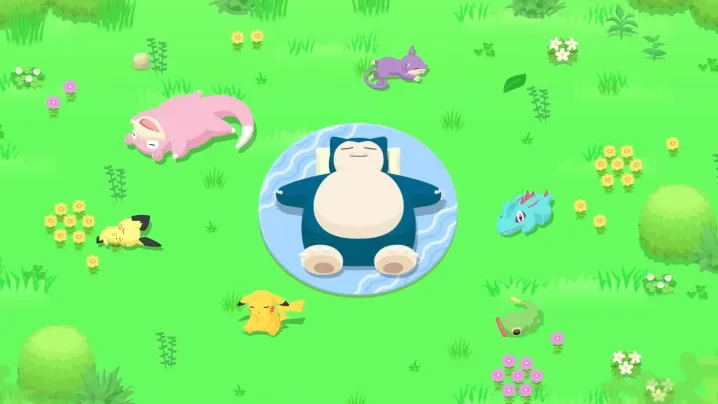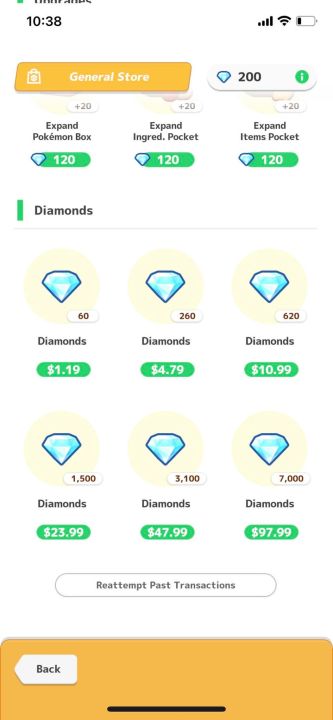Pokémon Sleep launched on my birthday. I’ll probably never forget that fact due to the embarrassing text message I had to send upon learning the sleep-tracking app was suddenly available on iOS and Android devices. Knowing I had a journalistic duty to fulfill, I sent a message to my girlfriend — who had planned out a lovely night out for us — to let her know that I’d have to leave my phone on my bed when we slept that night so Snorlax could gobble up my data.
“Lmao okay,” she replied.
Despite that momentary embarrassment, I was particularly curious to try the adorable app. I’d never done any sort of sleep tracking before and I wondered if Pokémon could teach me a thing or two about my habits, pushing me to become a better sleeper. Knowing that one night wouldn’t tell me much, I resolved to spend a full week with it and at least try to tweak my sleep schedule based on the data. If anyone could save my health, it would be Pikachu.
While I can’t say much has changed in the past week, Pokémon Sleep has taught me a lot already. It’s left me with some complicated questions about the benefits and pitfalls of gamification, but has also given me a newfound appreciation for the little routines that help structure our days. It takes something mundane and makes it something worth sharing and celebrating with my closest friends.
Sleeping lessons
Pokémon Sleep is a cross between a normal sleep-tracking app and an idle game that draws inspiration from another of the franchise’s mobile experiments, Pokémon Go. Users are tossed onto an island and tasked with “researching” different Pokémon sleeping habits. To do that, they employ the help of drowsy Snorlax, whose calming presence has a way of drawing in other drowsy creatures. The more users sleep in real life, the more Pokémon will appear overnight in adorable sleeping positions that can be documented.

It’s a smart way to apply the Pokémon RPG formula to a health app, bringing that familiar “catch ‘em all” hook. Though I was sold on that idea on paper, I was skeptical the app would work for me at all. In order to properly track my sleep, I’d have to put my phone on the corner of my bed and give it access to my microphone. Considering that my partner often stays the night with me, it seemed unlikely that I’d get perfectly accurate data. Even more concerning, though, was my darling cat, who almost immediately plopped down on my phone one of the first nights I tried to use it. I’d have to accept that my data might be a little inaccurate, sometimes tracking the quakes produced by my cat’s butt and her sad little morning meows as she begged for breakfast.
Fortunately, neither or those things presented much of an obstacle. That’s because the sleep data presented is more of a high-level overview than a detailed deep dive. While a graph shows me when I’m supposedly dozing off versus locked in deep sleep, the most important metrics are simply how long it took me to fall asleep and how long I stayed asleep. That’s represented as a simple score with a maximum of 100.
Through that, I’d begin to get a more concrete view of how my sleep patterns affected me. When I got a full night’s sleep on a Saturday, I felt fully alert on Sunday. When I woke up after under seven hours, I had trouble getting out of bed. A revolutionary discovery, right?
Gamifying bedtime
Being forced to reckon with the fact that I was a goblin was one thing, but what I really wanted was an app that would help me improve those habits. That’s where the actual game side of Pokémon Sleep comes into play. The core loop is that users need to build up Snorlax’s drowsy power throughout a week in order to attract more Pokémon each morning. That’s accomplished by checking in periodically during the day to make meals and collect berries automatically gathered by your chosen monster party. It’s very much a “numbers go up” idle game loop that requires minutes of engagement per day.
That’s where the incentives start to come into play. Sleep score is converted into a currency I can use to buy biscuits, which allow me to “catch” visiting Pokémon and add them to my squad, as well as evolution items. If I get a full night’s sleep, that means I can capture more friends. A few other factors play into that progression hook. The faster I research Pokémon, the quicker I’ll hit milestones that grant me rewards and unlock new areas.
You can’t have a game without a meta game.
That ingenious idea would quickly become a double-edged sword. Sure, I found myself wanting to get fuller rests, but not so much for any health benefits. Rather, I wanted to fill out my collection faster. I’d need the sleep points if I was going to snag rare visitors like Dodrio, who has an insatiable appetite for biscuits compared to more easily captured creatures like Caterpie. Sleep became more of a “min-max” RPG equation; a precious resource to be managed.
Responses like that are where gamification becomes a tricky proposition. On one hand, Pokémon Sleep is getting the job done. Does it matter what my reasons for going to bed earlier are so long as I’m doing it? After all, stamina is a real-world stat. At the same time, I’m cautious of turning good sleep into something I feel I should be rewarded for. My focus should be on feeling healthy, not being able to snag a Swablu when it visits, right?
That dilemma is compounded by the app’s approach to microtransactions. For those who want to speed up the inherently glacial progression of the “game,” there are shortcuts that skirt around sleep. A $10 a month Premium Pass subscription gives players 100 extra sleep points for each tracked sleep, as well as bonus biscuits and monthly gifts. It also unlocks a premium exchange shop, which reduces the cost of certain items. There’s also a different currency, diamonds, which can be bought with real money and spent in an entirely different shop.
It doesn’t help that the “game” part is a tiresome grind. To level up most creatures, I need to amass 80 candies of its type. Those are awarded randomly over time in batches of two usually. Candies are also used to level up Pokémon, which is separate from evolution and unlocks helpful perks. I need to decide if I’m going to use my precious resources to level up or wait potentially weeks to evolve. Or I could just buy the sleep pass, unlock the premium store, and get access to medium-sized Hard Candies, which can be quickly converted into any Pokémon’s candy.
Within a few days, I was already thinking about how I could speed things up if I just dropped a few bucks. How many biscuits could I buy with $5? Could I build a more efficient idle game operation by leveling my party up enough with items, unlocking helpful passive skills? You can’t have a game without a meta game; I’m old enough to remember when Pokémon SoulSilver and HeartGold came with a pedometer, prompting players to tie them to fan blades in order to level up their monsters without walking. That’s what Pokémon Sleep introduces to the sleep-tracking app market — and its approach to microtransactions tells me that’s likely not an accident — but there are no shortcuts when it comes to your health.
Building routine
While that setup leaves me with questions about how healthy it is for kids, I found something sweet in my first week with the app. Rather than dumping me after my first night with the app, my partner decided to download it herself. She saw it as a cute couple’s activity we could share while I was on assignment. What neither of us expected was that the app would instantly become an endearing routine over the next few days.

At night, we’d both sync up to start tracking the night, waving back at our respective Snorlaxes. When my alarm went off, we’d both rouse up much quicker so we could show one another the adorable visitors that had gathered on our islands. We’d remind each other when it was time to cook for Snorlax — though not before I fed my real cat. Even when we were apart, the app’s social features meant that we could check in on one another, boasting about who had the better night’s sleep (it’s me).
I’ve always known that I’m someone who benefits from structure and routine, but Pokémon Sleep finds a way to turn those personal rituals into something I can share with loved ones. After grappling with my initial skepticism, I reached out to a close friend and asked if he had downloaded it. We grew up playing Pokémon together and it’s been a primary way we’ve connected over the 15 years we’ve been in different states. He got on board, noting that his sleep cycle is all out of whack from raising two young kids. I’m able to see that detail of his life reflected in his nightly reports, bringing me just a bit closer to his life.
Though Pokémon Sleep has major shortcomings as both a health app and a game, I’ve come out of my experimental week with a somewhat positive attitude. Whenever I open it, I’m reminded of those magical first few months of Pokémon Go’s life, where I’d walk on the street and share friendly conversations with strangers also glued to their phones. Except Pokémon Sleep is that experience on a more personal level. I feel myself wanting to practice healthier sleep in hopes that my friends are inspired to do the same.
And hey, if I catch a Jigglypuff while doing it, that’s just a sweet nightcap.
Pokémon Sleep is available now on iOS and Android devices.




